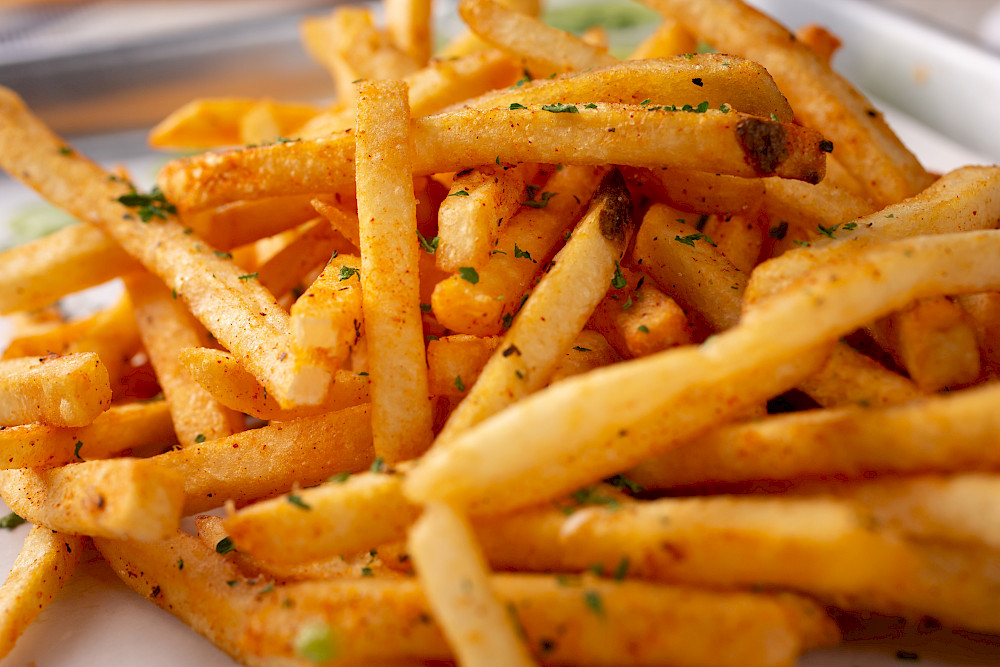Nature isn’t always on our side

When we hear the word “chemicals”, we usually think of something artificial and potentially dangerous – especially when they are found in our food. However, we should start by stating rather plainly that chemical processes form the basis of life and are not the antithesis of nature. However, it is precisely this contrast that is being discussed more and more, as the current trend towards a “natural lifestyle” seems to exclude things like preservatives, acidity regulators and emulsifiers.
However, these substances play an important role when it comes to supplying as many people as possible with appetising, tasty and inexpensive food with a long shelf life. Just a few decades ago, it was considered a blessing if food did not spoil. After all, nature isn’t always on our side– there’s a whole range of microorganisms just waiting to make meat rotten and bread mouldy. However, our risk perception shifted significantly, because food poisonings are rare nowadays. The fact that people are now more afraid of well-known, well-researched preservatives than they are of bacteria and fungi is irrational.
The primary purpose of food chemistry is to protect consumers. Many of the young people who study this subject will not go on to work in the food industry, but rather in official food control or food analysis laboratories. The more we know about food composition and chemical changes during production, storage and preparation, the safer our food becomes. And our knowledge is far from complete. One good example is acrylamide, which is considered as probably carcinogenic to humans. It is formed in various foods that are prepared at high temperatures, such as french fries. Thanks to food chemistry, however, we have gained a better understanding as to how acrylamide is formed and significantly reduced its levels in food products.
Despite what many consumers may think, the use of additives in food is also subject to stringent regulations, based on scientific studies and cushioned with a huge safety buffer: The acceptable daily intake is calculated by dividing the amount which is considered as safe in animal testing by one hundred. Another safety buffer is added when calculating the amount of each additive-containing food a person can be reasonably expected to consume per serving. This practically rules out any undesired effects. In addition, the law states that each and every food additive has to offer some kind of benefit and has to be technologically necessary. Some additives are even completely banned from certain foodstuffs.
However, the purpose of additives is sometimes open to interpretation and controversy; not all substances are intended to increase a product’s shelf life, nor are they essential for the production process. It is worth mentioning colourings here. But if beta-carotene wasn’t added to vegetable margarine, for example, it would be a colourless spread with a highly unnatural appearance. We prefer to see a yellowish colour, because it reminds us of butter. We could also include flavour enhancers in this category – certain foods could be produced without them, but then they wouldn’t have such an intense taste. For example, glutamate provides the savoury taste of protein-rich foods and occurs naturally in meat, mushrooms and hard cheese. If you want to completely remove glutamate from your diet, you would also need to stop grating Parmesan over your pasta or salads. However, this shouldn’t really be necessary; studies show quite clearly that glutamate doesn’t trigger any symptoms in the vast majority of people.
There is currently no reason to assume that health problems might be caused by any of the currently approved additives when consumed in normal amounts. Of course, some people have rare intolerances, but these can also be triggered by unprocessed food. But if you are still sceptical and have both the time and money at your disposal, you should cook with fresh ingredients. When we make our own food from scratch, we are usually willing to overlook the odd inadequacy and are not dependent on long shelf lives. However, we should be under no illusion – freshly made chicken soup is no long-life product and costs more than a few cents. However, consumers have become accustomed to affordable food that always looks and tastes the same. That isn’t possible without additives – or ingredients with the same function.
As a general rule, if you want to eat healthy, you should opt for a balanced diet and not just serve up highly processed ready meals. At the same time, it is worth taking a more pragmatic view of industrially manufactured, readily available food and to question the common food myths. There are quite a few people who consider cane sugar to be more natural and healthier than white household sugar. From a scientific point of view, both are nothing more than sucrose which, in turn, consists of glucose and fructose. If you accept this as a fact, you should be wondering whether it really makes sense to transport cane sugar halfway around the world when sugar beet is grown right on our own doorstep.
Professor Daniel Wefers has been teaching food chemistry at the MLU since 2019. His research focuses on the formation and analysis of carbohydrates as well as their occurrence and functions in food. Born in Baden-Württemberg, he studied food chemistry at the Karlsruhe Institute of Technology (KIT), where he obtained his doctorate in 2016 and obtained habilitation in food chemistry in 2021 with a thesis on the synthesis, cleavage and molecular structure of functional oligosaccharides and polysaccharides.
Wefers promotes a more pragmatic approach to industrially manufactured food on Twitter (@DanielWefers).
Contact:
Professor Daniel Wefers
Institute of Chemisty
Telephone +49 345 55-25772
Mail: daniel.wefers@chemie.uni-halle.de

